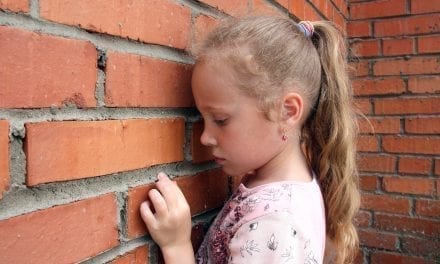Today, it seems that more and more we see children who display lots of drama. I like to define drama as “BIG” emotion over “little” stuff. In essence, the emotion is disproportionate to the disappointment or frustration…and we all tend to get annoyed by it.
Let’s examine why this big drama has such a long-term negative consequence—if we don’t help our children to ‘drop the drama.’
Big drama multiplies pain.
With drama, children experience small issues as if they are major problems. Minor upsets become major events. The amount of anguish and emotion is exaggerated, and thus life is filled with more pain than necessary. Life is lived with a distorted sense of exaggerated pain and unhappiness.
Big drama promotes a sad and negative orientation toward life.
Because drama tends to magnify small upsets into major moments, life appears more pessimistic than necessary. It’s as if children are looking out through a selective filter that constantly finds reason to seek what’s wrong with the world…and often ignores what is right with the world.
As time goes on, such drama is more and more unattractive to well-adjusted and healthy kids. Therefore…
Drama Kings and queens often (not always) attract other kids with drama.
Children prone to drama end up making friends with other kids prone to drama. They share their drama stories, and life is further filled with emotionality and upset. There is little room for noticing and appreciating positive and healthy aspects of life. The drama feeds on itself, particularly as children move into pre-adolescence and adolescence.
Big drama destroys self-esteem.
In part, self-esteem evolves from a sense of personal mastery and competence, and the self-knowledge that “I can handle life.” As children grow older, they gain awareness of their coping capacities. When life is filled with lots of drama, self-esteem often suffers because it becomes obvious that little moments cause huge upsets, and that life feels like a roller-coaster ride.
Big drama hampers their chance for life success.
To succeed in various areas in life, challenges need to be embraced, frustrations mastered, and an ability to persist in the face of obstacles. These traits are requisites for success in almost every arena.
When big drama shows up in the face of challenge or frustration, children are choosing drama over persistence. Rather than turning toward the source of frustration, and pursuing a path through the difficult obstacles, they tend to get lost in the drama and disengage from the task at hand. The drama becomes the center of attention when efforts at persistence and problem solving are needed.
What you can do to help your child ‘Drop the Drama?’
First, big drama is like an addiction….so make sure you don’t feed it. Even though it doesn’t make sense, kids can become addicted to drama. During their early years, this drama often pulls parents to intervene…to console….to help their kids through these difficult moments.
Think of your repeated attention as an invitation for future drama…not a solution. To see the drama as an addiction…and stop feeding it with your attention.
Secondly, kids need to get through their drama on their own. They learn from this. They learn from you being able to allow them to get through it. This is a critical point. In reality, we all ultimately need to get through our emotions on our own. You’ll find when your kids are allowed to have a moment of drama, they’ll get through it. They’ll get through it more and more quickly…when you simply allow them to have their upset…and don’t try to fix it!
Finally, above all, don’t reward the drama by giving in to drama demands. As children get older, the drama emerges when they are not getting what they want. If you allow yourself to reward the drama, to make it go away, you’re setting yourself up for misery during those adolescent years.
When the drama emerges, give it nothing. Give it no energy. Give it no attention. And above all…don’t give into demanding drama!
If you follow those steps, then you will find yourself empowered to help your child develop more emotional stability.














